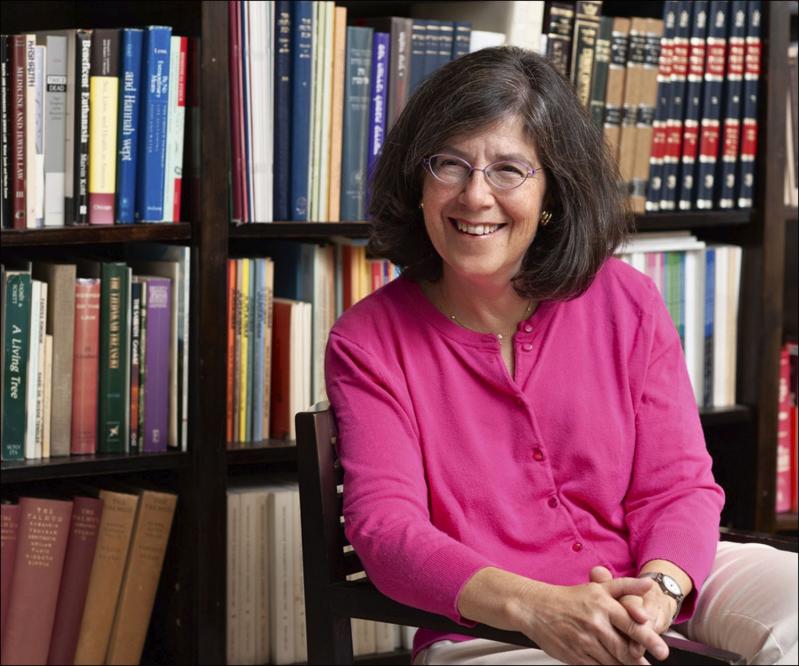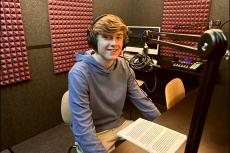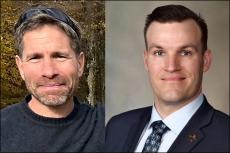One of the essential roles of religion, Rabbi Jan Uhrbach of the Bridge Shul in Bridgehampton said this week, is to “help us hold onto our humanity, and remind us of the higher values that go beyond money and power and position and all of those things, in a time when the values that I hold dear are not only being violated, they’re being rejected as values.”
Indeed, Elon Musk, as a close adviser to President Trump, told a podcaster in February that “the fundamental weakness of Western civilization is empathy,” spent his brief time at the so-called Department of Government Efficiency eliminating the jobs of hundreds of thousands of Americans, and oversaw the effective elimination of the United States Agency for International Development, directly resulting in the deaths of many, many people in the developing world, especially children.
As part of the Trump administration’s initiative to deport undocumented immigrants, the secretary of homeland security used a crowded El Salvador prison cell as a backdrop to a video. The president himself mocks, belittles, and demeans his political opponents daily.
In her new Substack newsletter, “On Being a Jewish American Today,” Rabbi Uhrbach considers these instances of cruelty, such as a video titled “ASMR: Illegal Alien Deportation Flight,” posted on the White House’s account on X, Mr. Musk’s social media platform. An attorney who once clerked for Federal District Judge Kimba M. Wood, the rabbi has thus far posted three-part treatises on “Cruelty and Dehumanization” and “Truth.” Her essays, she said, are “from a religious perspective — not a partisan perspective — on the issue of morality and religious values, Jewish values, character, our humanity.”
“I felt within the congregation that people were hungry for religious leaders to speak out,” she said this week. “My sense was that when we have services on Friday night and Saturday morning, people need Shabbat to be Shabbat. They didn’t necessarily want all the concerns of the week coming into that service.”
Initially, she planned to write only to the congregation. “Then people kept writing, ‘Can I forward this?’ The hunger to hear religious voices speaking to this moment,” she said, “is larger than the congregation.”
She recalled Robert Rifkind, a member of the congregation who died in March. A trial lawyer known for his successful defense of Time magazine against a libel suit filed by Ariel Sharon, the former Israeli general and prime minister, “he said to me that because of the First Amendment, both the separation clause and the establishment clause, Jews have flourished in America like no other time in our history outside the land of Israel. He said we owe a duty to defend it. Why aren’t rabbis speaking about that duty from the pulpit? His framing struck me very deeply. This country has been very good to Jews and other religious minorities. I feel obligated to say something about that duty. When I see the Constitution being violated, it is important to speak about our duty to the Constitution.”
“The times are so dehumanizing,” she said of this moment. “I think one of the essential roles of religion is to help us hold onto our humanity, and remind us of the higher values that go beyond money and power and position and all of those things, in a time when the values that I hold dear are not only being violated, they’re being rejected as values. That, I think, is one of the most difficult and dangerous things.”
And truth itself is threatened. “Currently,” she writes in “On Being a Jewish American Today,” “both truth itself as a value, and the institutions and practices that help bring us closer to truth, are under broadside attack. A free press, scientific research, attorneys at law, universities, libraries, governmental watchdogs and checks and balances, expertise generally are being systematically assaulted. All these institutions need our defense.”
And “it is abundantly clear that the government’s censorship effort is . . . a wholesale effort to make significant aspects of American history, culture, and society simply disappear — a deliberate construction of falsehood, a gross and dangerous violation of truth. . . . The intentional destruction of truth is abhorrent to Jewish values and teachings, unjustifiable and insupportable, and at odds with any genuine claim of religious faith.”
“Where I feel the need to speak is when I hear things like ‘Kindness and compassion are weakness, what it’s all about is winning and power. Being honest and truthful, being kind and respectful is not important.’ “
At the same time, however, “I do believe that the majority of people want to be inspired to be better. . . . It’s important to remember always that multiple things are true at once. The scariest, most devastating things happening — some of the behavior of [Immigration and Customs Enforcement] in which people are being humiliated and their lives ruined out of carelessness and cruelty, that is true. And it is also true that millions who are not personally, largely at risk took to the streets to stand up for these people, that’s true. I do think that it is possible that we are beginning to see a moral awakening in this country, even a religious awakening, that is going to look different than anything we’ve seen before.”
The rabbi posts, “when I really have something to say. I don’t want to respond to everything, or feel I have to write every other day. It’s important to me that I’m writing in an honest way, and that I’m really writing with nuance and care. I don’t want to be another op-ed columnist — nobody needs me to do that.”
The response has been very positive, she said. “I’m hearing from a lot of people that it’s meeting a need.”
“On Being a Jewish American Today” can be read at bridgerabbi.substack.com.




